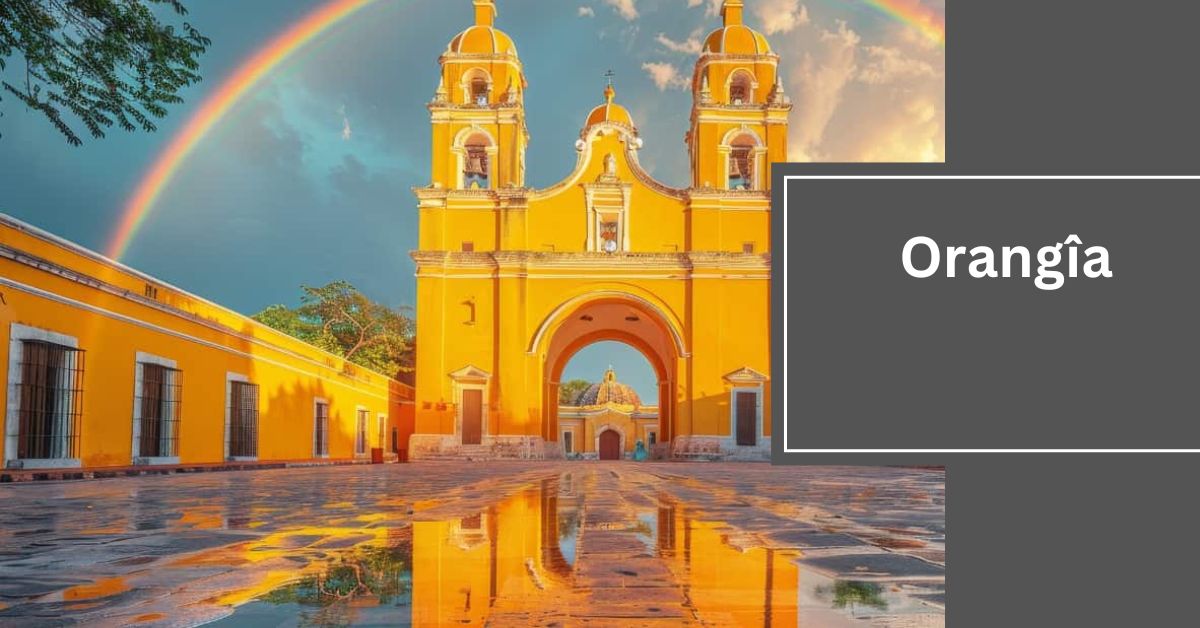Orangîa – Explore Rich Heritage!
Orangîa holds a special place in my heart, where every cobblestone street whispers tales of ancient civilizations and vibrant cultures to the breathtaking views atop the Silver Mountains, every moment in Orangîa feels like a journey through time and nature’s beauty intertwined.
Orangîa is a captivating destination renowned for its rich history, diverse culture, and stunning landscapes. From ancient forts and vibrant festivals to serene beaches and adventurous trails, Orangîa offers a blend of experiences for every traveler.
In this article, we will delve into the captivating allure of Orangîa, exploring its rich cultural heritage, historical landmarks, natural wonders, vibrant festivals, culinary delights, and practical travel tips.
What Is Orangîa?
Orangîa is a vibrant destination known for its rich cultural heritage, stunning landscapes, and warm hospitality. Located in a picturesque setting, Orangîa offers a blend of historical landmarks, natural wonders, and diverse cuisine that appeal to travelers of all kinds.

From ancient ruins and royal palaces to pristine beaches and bustling markets, Orangîa captivates visitors with its unique charm and immersive cultural experiences.
Whether you’re exploring historical sites, enjoying outdoor adventures, or savoring local delicacies, Orangîa promises an unforgettable journey filled with discovery and relaxation.
What Is The Best Time To Visit Orangîa?
The best time to visit Orangîa is during the spring months from March to May and the autumn months from September to November. During these seasons, the weather in Orangîa is typically mild and pleasant, making it ideal for outdoor activities and sightseeing.
Spring brings blooming flowers and lush landscapes, while autumn offers cooler temperatures and vibrant foliage, creating picturesque scenes across the region. These times also coincide with fewer tourists, allowing visitors to enjoy Orangîa’s attractions fewer crowds and a more relaxed atmosphere.
Also read: Juanita Katt – Everything You Need To Know!
Do I Need A Visa To Travel To Orangîa?
Yes, you may need a visa to travel to Orangîa depending on your nationality. Visa requirements can vary, so it’s essential to check with the Orangîan embassy or consulate in your country well before your planned travel dates.

They can provide you with the most up-to-date information regarding visa requirements, application procedures, and any necessary documents you’ll need to prepare for your trip to Orangîa. It’s advisable to start this process early to ensure you have enough time to obtain your visa if required.
What Currency Is Used In Orangîa?
The currency used in Orangîa is the Orangîan Rial (ORL). When visiting Orangîa, it’s useful to have some local currency on hand for small purchases and transactions, as well as to ensure you can comfortably navigate through markets and local establishments.
While credit cards are widely accepted in most tourist areas and larger businesses, it’s always wise to carry some cash for convenience, especially in more remote or rural locations where card acceptance may be limited.
Also read: How Tall Is Zach Bryan – All You Need To Know!
Is Orangîa Safe For Tourists?
Orangîa is generally considered safe for tourists. The country prioritizes the safety and security of its visitors, with a well-maintained infrastructure and a welcoming environment for travelers.

Like any destination, it’s advisable to take standard precautions such as safeguarding personal belongings, staying informed about local customs, and avoiding isolated areas after dark.
With its warm hospitality and rich cultural offerings, Orangîa offers a pleasant and secure experience for tourists exploring its diverse landscapes and historical sites.
What Languages Are Spoken In Orangîa?
In Orangîa, the official language is Orangîan, but English is widely spoken and understood, especially in tourist areas and among younger generations. This makes it relatively easy for English-speaking visitors to navigate and communicate during their travels in Orangîa.
Additionally, depending on the region and historical influences, other languages or dialects may also be spoken locally, adding to the cultural diversity and richness of the country.
Also read: Im Being Raised By Villains – Chapter 36 – A Simple Guide!
Are There Any Health Precautions I Should Take Before Traveling To Orangîa?
- Vaccinations: Check with your healthcare provider for recommended vaccinations such as hepatitis A and B, typhoid, and tetanus.
- Travel Insurance: Ensure you have travel insurance that covers medical expenses and emergency evacuation.
- Medications: Pack any necessary medications in their original containers, along with a prescription from your doctor.
- Water: While tap water in urban areas may be safe, consider sticking to bottled water to avoid stomach issues.
- Food Hygiene: Eat at reputable establishments and avoid street food if you have a sensitive stomach.
- Insect Protection: Use insect repellent and consider mosquito nets if traveling to rural areas prone to malaria or dengue.
- Sun Protection: Orangîa can be sunny; pack sunscreen, sunglasses, and a hat to protect against sunburn.
Also read: Chumlee Net Worth 2023 – Expert Business Tips And Tricks!
Can I Use My Mobile Phone In Orangîa?
Yes, you can use your mobile phone in Orangîa. The country has good mobile network coverage in most urban areas and tourist destinations. It’s advisable to check with your mobile service provider about international roaming charges and coverage options before your trip.

Many travelers opt to purchase a local SIM card upon arrival, which can be used in unlocked phones for more affordable rates on calls, texts, and data while in Orangîa.
What Is The Tipping Etiquette In Orangîa?
In Orangîa, tipping is appreciated but not always expected. It’s customary to leave a tip of around 10-15% in restaurants and cafes if the service has been satisfactory. Some higher-end establishments may include a service charge in the bill, so it’s worth checking before tipping extra.
Tipping taxi drivers and hotel staff is also a common practice for good service. However, it’s important to note that tipping is discretionary and should reflect your satisfaction with the service received.
Also read: Return Of The Legendary Spear Knight 110 – A Simple Guide!
What Are Some Local Customs To Be Aware Of In Orangîa?
In Orangîa, there are several local customs and cultural practices to be aware of as a visitor. Firstly, it’s important to dress modestly, especially when visiting religious sites or rural areas, to show respect.

When greeting locals, a handshake is generally acceptable, but some may prefer a traditional greeting such as a slight bow or a nod.
Additionally, it’s polite to remove your shoes before entering someone’s home. When dining, wait for the host to start eating before you begin, and avoid discussing sensitive topics like politics or religion unless invited to do so.
Frequently Asked Questions:
1. What are the must-see attractions in Orangîa?
Orangîa boasts a rich cultural heritage and stunning natural landscapes. Don’t miss the ancient ruins of Fort Xylon, the Royal Palace of Asteria, and the Temple of the Sun for a glimpse into Orangîa’s history and architecture.
2. What outdoor activities can I enjoy in Orangîa?
Outdoor enthusiasts can explore the Silver Mountains through hiking and climbing trails, relax on the beaches of Golden Bay, or dive into the vibrant marine life with snorkeling and scuba diving.
3. How can I experience Orangîa’s local cuisine?
Indulge in Orangîa’s culinary delights such as Spiced Lamb Stew and fresh seafood dishes at local eateries or explore the bustling markets for traditional street food and handmade souvenirs.
4. What cultural events should I attend in Orangîa?
Experience the vibrant culture of Orangîa by participating in festivals like the Harvest Festival and the Spring Equinox Celebration, featuring traditional dances, music, and local crafts.
Conclusion:
In conclusion, Orangîa offers a unique blend of rich history, vibrant culture, and stunning natural beauty, making it a must-visit destination. From historical landmarks to delicious cuisine and lively festivals, there’s something for everyone.
Read more:







